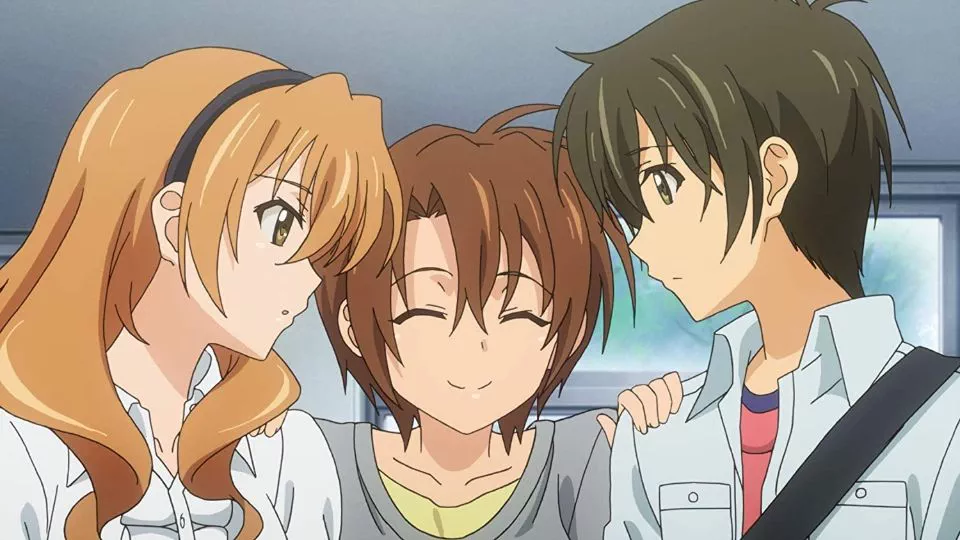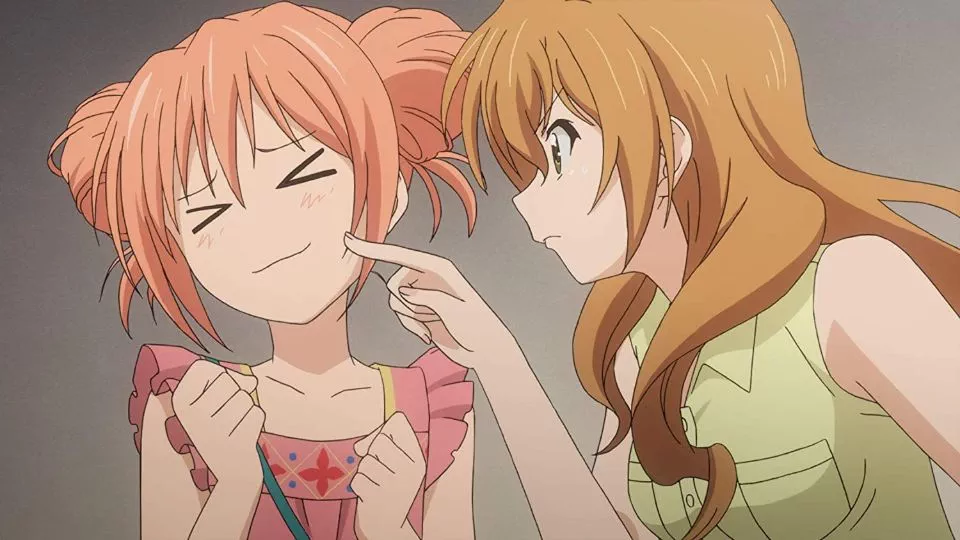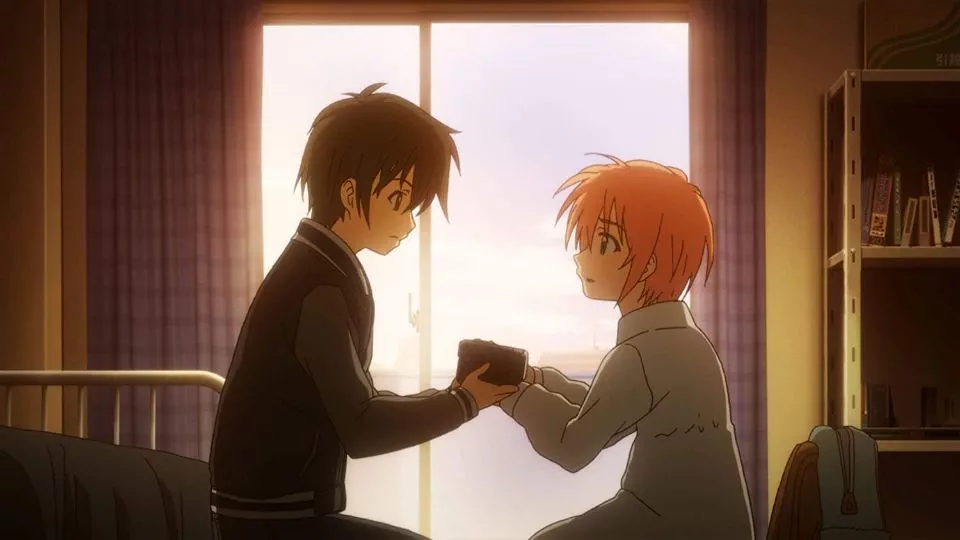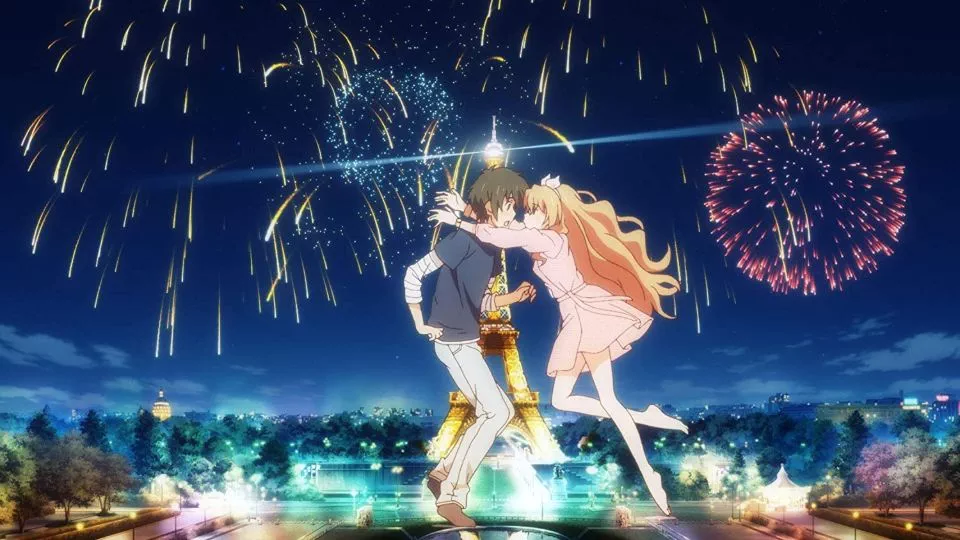Made in Abyss - TV Series R...
Introduction Made in Abyss was produced by K...
By Adonis Monahan4113

0

Introduction
Golden Time is a romantic drama that premiered in October 2013 and was based on a light novel under the same name by Takemiya Yuyuko. The anime was produced by the studio J.C. Staff, the same studio behind anime like Toradora!, DanMachi, and Shokugeki no Souma. Personally, I felt that Golden Time was definitely a great anime, it just failed to innovate in certain areas and didn’t utilize certain plot devices in a very realistic or useful way. Still, despite its shortcomings, some aspects were done excellently. Currently, Golden Time has a rating of 7.88 out of 10 on MyAnimeList, although I would give it a solid 8 out of 10, at a “very good” on the MyAnimeList scoring scale.
Story
Putting aside all the expositional plot twists and character reveals, when all the characters finally get settled after the first five or six episodes, they tend to stay in those positions for the remainder of the anime. Unfortunately, Golden Time’s story isn’t the most dynamic or progressive, but it is a romance/drama type so that’s to be expected. Golden Time relates the story of a high school graduate Tada Banri, who, right after his graduation, gets into an accident and suffers major retrograde amnesia. With no memory of his life prior to the accident, he decides to leave his family’s small town and move to Tokyo, where he would attend a private university and study law. There, he begins to struggle with leaving behind his past, adjusting to the future, and making friends and relationships. He quickly enters a romantic relationship with Kaga Kouko, an extremely imposing girl who attends the same school he does. As Banri gets to know Kouko, he works to enter his university’s festival club where he prepares to perform traditional Japanese dances with his upperclassmen. However, because drama demands it, unbeknownst to Banri, his childhood friend Linda actually attends the same university he does and is a senior member of the festival club as well. It’s later revealed to the audience that Bari once loved Linda, and part of the reasons why he gets into his accident is because he was waiting for her answer to the question of whether she loved him back. Now, Banri loves Kouko, but as his memories threaten to return, he fears for the erasure of his new personality, and the havoc that might wreak on his new life at the university.
To be completely frank, I had to go back to an episode summary to check if anything of real plot significance occurred throughout the anime, and the vast majority of the middle fifteen episodes is a bunch of different dramatic scenarios. Banri’s friends from university have their own love lives and the issues associated, their group of friends take a trip to the beach once, the festival club works to prepare for and perform multiple dances and performances during different events, which Kouko, Banri, and Linda all participate in. The drama is far from bad and is generally well executed; I didn’t really have much issue with the different events that were happening throughout the middle of the show. Everything was very stereotypically dramatical and romantic. The occasional misstep here was to create tension in a relationship, the resolution of a tough situation growing a romantic relationship there, all of it was very normal for television and that really didn’t bother me. The beginning of the show was mainly devoted to exposition; Kouko actually starts the show chasing after Banri’s new best friend Yanagisaw Mitsuou, due to their status as childhood friends, and Banri supports her through her rejection.
What is unique to Golden Time though is what I personally like to refer to as the “Ghost of Past Banri.” Banri’s amnesia creates a new personality in him, and the Banri formed of his own previous memories is locked within him, struggling to get out, and occasionally causing mischief as Banri slowly regains his memories over the course of the show. There were a couple of fantastic episodes where the ghost seems to be fighting with New Banri and the struggle between them is presented as a series of semi-supernatural occurrences, with New Banri pushing on to maintain his relationship with Kouko, as well as keeping his feelings for Linda at bay. Unfortunately, the anime failed to resolve the Ghost of Past Banri as well as they could have. In one of the episodes where Banri decides to try reconnecting with his past instead of abandoning it, he returns to the bridge where he fell and first lost his memory. He encounters the Ghost of Past Banri there. The Ghost falls off the bridge, prying his hand free of New Banri’s grip. This could have been the perfect symbolic transition to have Banri fully heal from the effects of his past and move on, but what only happens is that Past Banri returns in full force, giving Banri a panic attack and causing him to briefly forget everything after the accident. Why briefly? In order to give Kouko a reason to try to shut Banri out forever, of course.
In the end, Banri permanently loses his memories after the accident and is reverted to pre-accident Banri, but only after going through another repetition of his brief loss of memory, and struggling to hide it from Kouko, who he fears will abandon him if he regains his past memories due to his love for Linda. This is where the drama felt excessive and forced. On the one hand, the usage of amnesia as a medical condition made most of the angst feel unnecessary. A medical condition is the absolute form of excuse for any mix-up in the romance, and not directly Banri’s fault. If Golden Time really wanted to build a story about someone voluntarily forgetting their past, and the struggle in putting it behind them and avoiding their own past relationships, this could have felt deserved, especially when Kouko finally breaks up with Banri; but Banri’s actual amnesia felt a little forced. More than anything, the fact that I was forced to explicitly think about the dynamics of this relationship and Kouko’s motivations behind leaving Banri, tell me that the anime failed to cleanly express the dynamics of their relationship in leading up to the break up; either that, or the break-up was out of character. I will add that part of the break-up, according to Kouko’s father was due to Banri’s failure to chase after Kouko, and while this is definitely an interesting element to their relationship, a more thorough exploration of it beforehand would definitely have made it more solid. I never really got a strong indication that Banri was that kind of static in their relationship.
 https://revyou.com/uploads/thumbnail-960/1594530117087Golden_Time3.webp
Golden Time Review
https://revyou.com/uploads/thumbnail-960/1594530117087Golden_Time3.webp
Golden Time Review https://revyou.com/uploads/thumbnail-960/1594530117088Golden_Time4.webp
Golden Time Review
https://revyou.com/uploads/thumbnail-960/1594530117088Golden_Time4.webp
Golden Time Review https://revyou.com/uploads/thumbnail-960/1594530117089Golden_Time5.webp
Golden Time Review
https://revyou.com/uploads/thumbnail-960/1594530117089Golden_Time5.webp
Golden Time Review
On the other hand, the final episode was definitely more satisfying than some other conclusions to romances I’ve watched before. Banri finally reverts to his past and breaks out of it only when he remembers the love he shared with Kouko. He chases after her and they’re able to resume their relationship in a very satisfying way as he regains all his memories of the future by the power of their combined love (and the efforts of the most important side character, 2D-kun). Again, not a particularly innovative conclusion, but definitely effective.
Characters
As a romance/drama show, characters are of paramount importance to the show as a whole. Thankfully, most of the characters are quite richly developed. The main cast of Golden Time numbers seven, although several side characters are often introduced and play key roles throughout the course of the show. Most of the characters are quite dynamic, with even the least important character, Banri’s neighbor Nana showing some kind of development and more relevance to the story than when the plot demanded it. I was definitely surprised most of all with the character Mitsuo’s development. After rejecting Kouko in the beginning of the show, he pines temporarily after another member of their circle, Oka Chinami, before actually mooning over Linda. The nature of his affection is very realistic, and his reactions to Banri’s past relationship with Linda, and his later reconciliation with Banri definitely felt in-character and well-earned. Banri, Kouko, and Linda are also quite round and dynamic, but definitely not as much as they should have. For the most part, Banri and Kouko’s relationship is relatively static. For some reason, they start their relationship perfectly, with the two pretty much ready for marriage, an incredibly unrealistic state of affairs for two youths in their first year of college. They get along perfectly and enjoy being in each other’s company every second of the day. Romance is romance, yes, but even an anime has to take a break occasionally to build some depth to each person’s character. People aren’t jigsaw puzzle pieces designed to fit perfectly together. Linda, at the very least, was a strong character; her past drama with Banri gave her the wariness necessary to build some substance in her relationship with Banri throughout the series.
Art and Music
I wasn’t terribly impressed by Golden Time’s art. It rarely had any issues, but its style felt very ordinary and normal. Unlike Toradora which was produced by the same studio and generally falls into the same genre, Golden Time lacked the kick and rich colors that made Toradora especially fun to watch. The character designs were all very normal and nothing really stood out to me. Sure, the art was high enough in quality to be enjoyable to watch, but there’s not much to say about it outside of the context of the show. The music is pretty much the same. There were a few moments when the soundtrack stood out to me, but generally it stuck to the background and it did its job from the shadows, peeking out occasionally to accent important moments, but generally remaining passive.
However, what I will comment on quite aggressively are the opening and ending themes. Rarely do I find myself outrightly upset with an opening or ending theme, but I’m afraid I differ quite strongly with the style employed in all four of the themes. While the show itself is a romance, it’s far from the rosy, sappy affair presented in the openings. The show does have a lot of comedic moments and I did find myself laughing out loud at times, but I found the openings to be very misleading, and at times downright annoying to watch or even listen to. Actually, the one time I found myself openly disgusted during the show was when I accidentally skipped ahead to the middle of the second opening. I hope none who haven’t already watched the show haven’t already read this far into this review (the number of spoilers in the review so far are an unacceptable number for those who haven’t already watched it), but if you are yet to watch it, I highly recommend that you skip past all the themes. Perhaps the second ending was the most bearable of the four, but I was definitely disappointed with the style invoked in all four themes and its lack of consideration for the slightly more serious, conflicted themes presented in the show.
Conclusion
In conclusion, Golden Time is by no means a bad show. In fact, it’s a very good show. The only thing that separates it from being a great show is its lack of innovation, and its characters being a tiny step away from perfect relatability. I mentioned some of the struggles the show had with playing the amnesia mechanic to its perfect potential, but Golden Time definitely dealt with its troubles much more effectively than many other anime had. While the main characters could definitely have dealt with a little more development and a little richness to be added to their relationships, the cast was a pleasure to watch for a good six sevenths of the show; the humor in the show is quite fun, and the emotional moments definitely had me on the edge of my seat as I looked for a resolution to whatever dramatic irony was being exploited. I hereby grant this show a solid eight points out of ten.
Updated 4 years ago